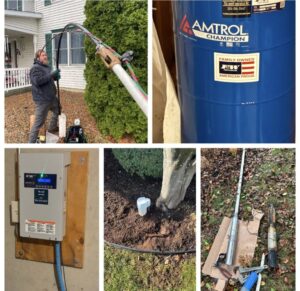Clean water is essential for every household, but choosing the right purification system can feel overwhelming with so many options available. The good news is that understanding the different types of water purification systems doesn’t have to be complicated. With the right knowledge, you can make a confident decision that ensures safe, high-quality water for your home.
Why Water Purification Matters
Water from natural sources often contains impurities such as bacteria, sediment, and harmful chemicals that can negatively impact your health and daily life. A reliable water purification system eliminates these contaminants, ensuring clean and safe water for drinking, cooking, and other uses. Whether your water comes from a municipal supply or a private well, having an effective purification system is key to meeting safety standards and enhancing your water’s quality.
What are the different types of water purifiers?
Water purification systems are designed with specific technologies to address unique water quality concerns. Reverse osmosis systems, for example, are highly effective for removing heavy metals, bacteria, and dissolved salts. Using a semi-permeable membrane, they filter out impurities, making them an excellent choice for homes dealing with hard water or widespread contamination.
UV purifiers, on the other hand, use ultraviolet light to destroy bacteria, viruses, and other microorganisms. These systems are particularly useful when microbiological contamination is a concern. However, they are often paired with other filters to address sediment and chemical issues that UV light alone cannot tackle.
Activated carbon filters are popular for improving the taste and odor of water. By removing chlorine, volatile organic compounds, and other organic contaminants, these filters enhance water quality and are commonly found in countertops or faucet-mounted systems.
Sediment filters play a crucial role in protecting your overall purification setup by removing visible particles like sand, dirt, and rust. They act as a pre-treatment step, ensuring that other filters or systems function efficiently without clogging or damage.
For those who rely on well water, specialized systems to remove iron and sulfur can be essential. These systems target metallic tastes, odors, and stains caused by high concentrations of these elements, ensuring that your water is fresh, clear, and pleasant to use.
Choosing the Right Water Purification System
Selecting the best water purification system requires understanding the specific issues with your water supply. Conducting a water test helps identify the contaminants present, which can guide you toward the most effective solution. For instance, a home with high levels of bacteria might benefit from a UV purifier, while one with hard water or dissolved salts might require a reverse osmosis system.
Other factors to consider include your household size, water usage, and maintenance preferences. Larger households may require systems with higher capacity, while compact, low-maintenance systems work better for smaller homes. If you’re unsure which system is best for you, TLC Well Service offers professional guidance and support to help you choose and install the perfect solution for your needs.
The Benefits of Clean Water
A water purification system offers more than just peace of mind; it significantly improves your quality of life. Clean water enhances the taste of food and beverages, protects your appliances by reducing scale and sediment buildup, and ensures your family’s health by removing harmful contaminants. It also reduces your reliance on bottled water, saving money and contributing to a healthier environment.
Have more questions?
At TLC Well Service LLC, we’re here to provide fast, reliable service to get your well back up and running. Contact us today if you have any questions!




